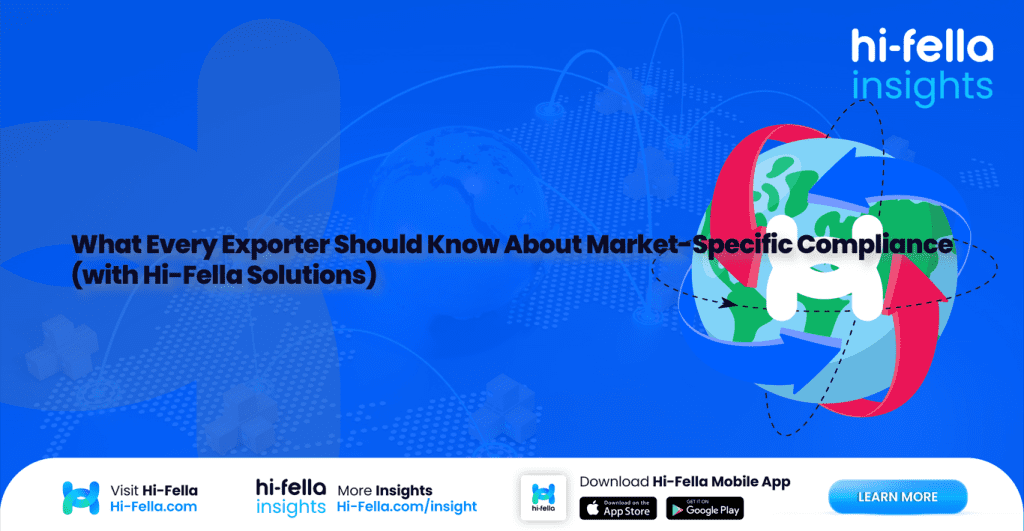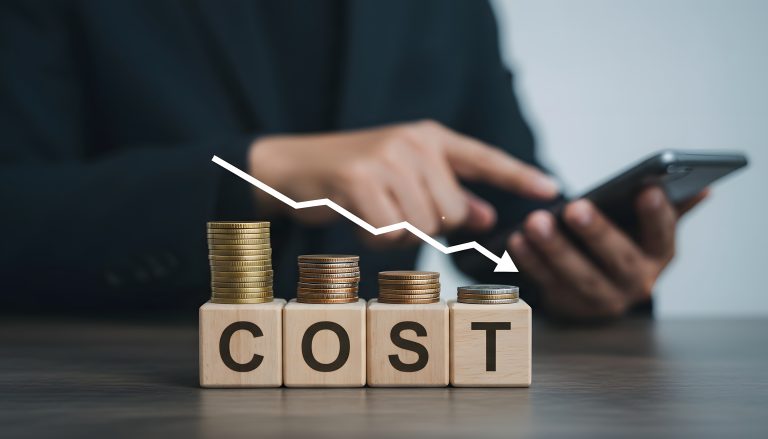Global trade isn’t just about moving goods across borders. It’s about understanding the rules that govern those borders—deeply, precisely, and often in real time. Compliance, especially when market-specific, can make or break international expansion. For exporters aiming to scale across continents, market-specific compliance isn’t a box to tick—it’s a competitive edge.
Whether you’re shipping medical devices to the EU, electronics to the Middle East, or food products to China, every market brings a unique regulatory landscape. And misunderstanding even one clause could mean shipment rejections, fines, or a loss of customer trust. That’s where platforms like Hi-Fella come into play—simplifying complexity with precision and real-world insight.
This article breaks down what exporters must understand about market-specific compliance and how Hi-Fella helps navigate it with intelligence and speed.
The Fundamentals of Market-Specific Compliance
At the highest level, market-specific compliance refers to a country or region’s unique requirements for imported goods. These can include:
- Product standards and certifications (e.g., CE in the EU, CCC in China, GOST in Russia)
- Labelling and packaging regulations (e.g., bilingual labels in Canada, halal certification in Indonesia)
- Tariff classifications and trade documentation
- Health, safety, and environmental mandates (e.g., REACH and RoHS in the EU)
- Quota or license requirements
Each of these layers is influenced by a country’s regulatory philosophy, trade history, and even socio-political sensitivities.
Take for instance, the cosmetics sector. While the U.S. takes a post-market surveillance approach, the EU requires pre-market safety assessment and registration in the CPNP (Cosmetic Product Notification Portal). An exporter failing to recognise this difference risks total market exclusion—even if the product is technically safe.
Why Market-Specific Compliance Is Non-Negotiable
The cost of non-compliance is not just regulatory—it’s reputational. According to a 2019 World Bank report, delays due to regulatory misalignment account for up to 30% of time lost in supply chains for developing country exporters.
Other consequences include:
- Customs delays or seizures
- Administrative fines or import bans
- Loss of buyer trust or cancelled contracts
- Insurance claim denials
- Difficulty securing trade financing
More subtly, compliance also impacts pricing and competitiveness. For example, not being able to qualify for tariff exemptions due to improper documentation (such as an invalid Certificate of Origin) can wipe out profit margins, especially in price-sensitive sectors like apparel or FMCG.
Compliance Complexity Varies Widely by Market
Let’s explore just how varied compliance landscapes can be:
- European Union: Focuses heavily on safety, environmental standards (e.g. REACH, WEEE, RoHS), and consumer rights. Extensive documentation is needed, and regulatory regimes are strict and centralised.
- United States: Emphasises legal liability and post-market enforcement. Agencies like the FDA, EPA, and FCC have strong sectoral mandates. Documentation must align with ASTM and other US-specific standards.
- China: Requires pre-approval certifications (CCC mark for many goods), detailed documentation in Mandarin, and strict import licence protocols, especially for agricultural and high-tech goods.
- Middle East: Countries like Saudi Arabia require SASO certifications and often need local agents or partners for product registration, particularly for food and electronics.
Understanding these differences—and preparing for them in advance—is what separates reactive exporters from resilient, agile ones.
How Hi-Fella Supports Exporters with Market-Specific Compliance
Hi-Fella isn’t just another B2B matching engine. It’s a regulatory navigation platform layered with real-time intelligence, industry-specific compliance guidelines, and global documentation frameworks. It delivers actionable support at each stage of the compliance process—from discovery to execution.
Targeted Compliance Intelligence Based on Product and Market
Once you input your product category and intended export destination, Hi-Fella instantly outlines the compliance framework tailored to that market. This includes:
- Required certifications (e.g., CE, FDA, HALAL, ISO)
- Documentation checklists
- Country-specific regulatory authorities and contact points
- Suggested timelines for approvals and verifications
This intelligence is constantly updated through integrations with global trade databases and local government portals, ensuring exporters are never working off outdated or incomplete information.
Integrated HS Code and Tariff Classification
Harmonized System (HS) codes serve as the backbone of international compliance. Misclassification of a product can lead to incorrect duty payments, denied entries, or mismatched regulatory requirements.
Hi-Fella helps exporters accurately assign HS codes through AI-driven classification, cross-referencing national customs databases, and matching real-world trade documents. For example, if you’re exporting LED lighting units to the UAE, Hi-Fella can flag that a SASO certification is needed and guide you through the approval process.
Document Automation and Template Matching
Compliance isn’t just about knowing the rules—it’s about preparing the right paperwork. Hi-Fella gives users access to a library of pre-vetted export documents specific to destination countries and product types. These include:
- Certificates of Origin
- Material Safety Data Sheets (MSDS)
- Health certificates
- Testing reports
- Regulatory declarations
- Import/export licenses
Instead of recreating documents from scratch, exporters can auto-fill approved templates and store them for reuse or audits.
Partner Identification for Regulatory Facilitation
Many markets require the appointment of local representatives, agents, or importers to fulfill compliance requirements. Hi-Fella’s network includes pre-verified partners who are familiar with local compliance protocols. These aren’t random contacts—they’re scored based on trade history, documentation accuracy, and peer reviews.
This ensures exporters don’t just find a market, but also the local support needed to enter it properly.
Compliance Milestone Tracking
Complex export projects often involve multiple compliance stages. Hi-Fella provides exporters with a dashboard that tracks progress in real time—showing which certifications are in progress, which documents are pending, and where bottlenecks are likely to arise.
This visibility is particularly valuable for exporters dealing with:
- Perishable goods (time-sensitive licensing)
- Regulated tech (e.g., IoT, telecommunications)
- Medical devices (multi-phase approvals)
By integrating workflow automation and milestone alerts, Hi-Fella reduces the risk of compliance failure due to overlooked steps.
Case Study: An FMCG Exporter Tackling Multiple Markets
A small FMCG manufacturer in Vietnam wanted to export organic snacks to three different markets: the EU, Saudi Arabia, and South Korea. Each market posed a distinct challenge:
- The EU required organic certification under EU Regulation 2018/848, plus multilingual labelling.
- Saudi Arabia demanded halal certification and SFDA product registration.
- South Korea required compliance with MFDS food safety laws.
Hi-Fella mapped out the certification pathways, connected the exporter with local compliance consultants in each region, and provided all necessary documentation templates.
Result: three successful market entries within 7 months, zero delays at customs, and an increase in international sales by over 40%.
The Competitive Advantage of Mastering Compliance
In a saturated global market, being the fastest or cheapest doesn’t always win. Being the most compliant does.
Regulatory alignment signals credibility, professionalism, and market-readiness. It boosts investor confidence, strengthens buyer trust, and allows access to premium markets where regulatory barriers keep lower-tier competitors out.
According to a Deloitte survey on global trade compliance, 63% of trade executives cite compliance as a key contributor to global supply chain success, not just a cost center.
Hi-Fella turns compliance from an obligation into a growth enabler.
Exporting without a compliance strategy is like sailing without a compass. The rules of trade are getting stricter, not looser. The countries you’re exporting to want to know your product is safe, tested, certified, and labelled correctly. They want traceability, ethical sourcing, and transparency.
Market-specific compliance isn’t optional—it’s foundational. But it doesn’t have to be intimidating. With Hi-Fella, exporters gain not just access to international markets, but the clarity and tools to meet those markets’ expectations with precision.
Whether you’re a first-time exporter or managing a multinational trade operation, Hi-Fella ensures your compliance game is always two steps ahead—smart, fast, and future-ready.
Join Hi-Fella Today!
Understanding market-specific compliance is no longer optional — it’s essential for any exporter aiming to succeed globally. That’s where Hi-Fella steps in. With its tailored compliance insights, access to verified trade partners, and support for documentation aligned with each market’s regulations, Hi-Fella makes it easier to navigate the complexities of international trade.
Whether you’re entering a new region or strengthening existing trade routes, Hi-Fella ensures you’re always prepared, compliant, and ahead of the curve. For exporters who want to trade with confidence and precision, Hi-Fella is the solution that turns compliance into a competitive advantage.








